Head and Neck Surgery
If you or a loved one is dealing with head and neck cancer and seeking information about treatment options, you’ve come to the right place. Our goal is to help you understand the available treatment options. So, you can make informed decisions in collaboration with your healthcare team.
This site has been developed by Dr Sandeep Nayak, a renowned surgical oncologist in India known for his surgical innovations like RABIT, RIA-MIND and PRIA. Dr Athira R, Dr Abhilasha and Dr Ameen, who are also well accomplished in the field, have contributed to the development.
MACS is a leading center for advanced head and neck surgery in Bangalore. Our highly trained head and neck surgeons prioritize completely removing cancer while maintaining the patient’s quality of life. Our main objective is to strike a delicate balance that allows us to provide the best option for controlling the disease while being highly attentive to the patient’s ability to speak, eat, and swallow. We prefer minimal access procedures using endoscopy or robotics to reduce complications and improve outcomes.
Our head and neck surgeons are nationally and internationally recognized for their expertise in:

Thyroid surgeries – Benign and Cancers
Oral cancer surgeries- Tongue cancer, lip cancer, etc.
Nasal cavity and sinus cancers
Base of skull surgeries
Parathyroid tumor surgery
Throat cancer operations, including laryngectomies
Salivary gland operations, including parotidectomy
Complex skin cancer surgeries
Discover more about head and neck cancer surgery and how MACS’s expertise can benefit you or your loved one.
Minimally Invasive Head and Neck Surgery
Our head and neck surgeons utilize minimally invasive techniques when appropriate. Patients often experience faster recovery times with minimally invasive surgery than with conventional open surgery. Many of the methods we employ have been developed by Dr Sandeep Nayak and team over the years. These techniques are now being adopted by surgeons worldwide after receiving training under him.
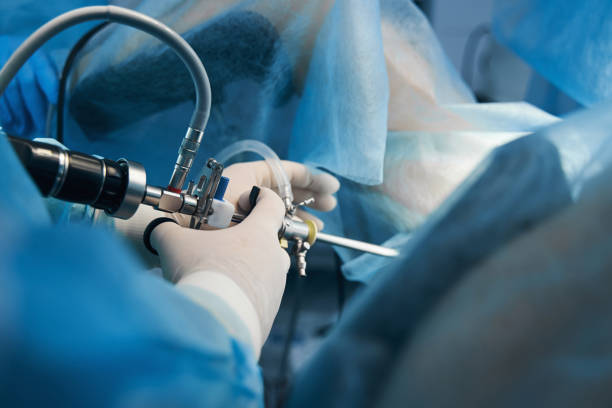
Robotic Head and Neck Surgery
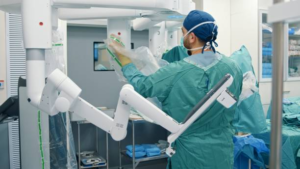
Though robotic surgery is new, the advantage of robotic surgery in head and neck tumors is that it allows for precise maneuvering in tight and confined spaces, a challenge often encountered in traditional surgical methods. These newer techniques offer several benefits, including:
- Reduced morbidity
- Maintaining the same quality of surgery
- Improved outcomes
- Quicker recovery
- Better cosmetic results
Patients worldwide have significantly benefited from these advancements.
Transoral Robotic Surgery (TORS)
Transoral robotic surgery (TORS) is a minimally invasive procedure for treating oropharyngeal cancer, including tonsil cancer. It involves 3D imaging and tiny robotic surgical instruments. These tools enable surgeons to reach tumors through the mouth without the need for external incisions.
This approach can help preserve speech and swallowing abilities. Patients typically experience faster recovery times than open surgery, often requiring only a few days of hospitalization. MACS’s surgeons have extensive experience with TORS and are adept at identifying patients who can benefit from this technique.
Transoral Laser Microsurgery (TLM)
Our surgeons are highly skilled in using transoral laser microsurgery (TLM) to treat tumors in the mouth, voice box (larynx), or oropharynx via the mouth. They use a microscope to identify the cancer cells and then employ a special laser beam to target and remove the tumor. This method does not require any external incisions, which helps the surgeon preserve speech and swallowing functions. TLM is usually performed as an outpatient procedure with a safe, quick-acting anesthetic that wears off quickly after the surgery.
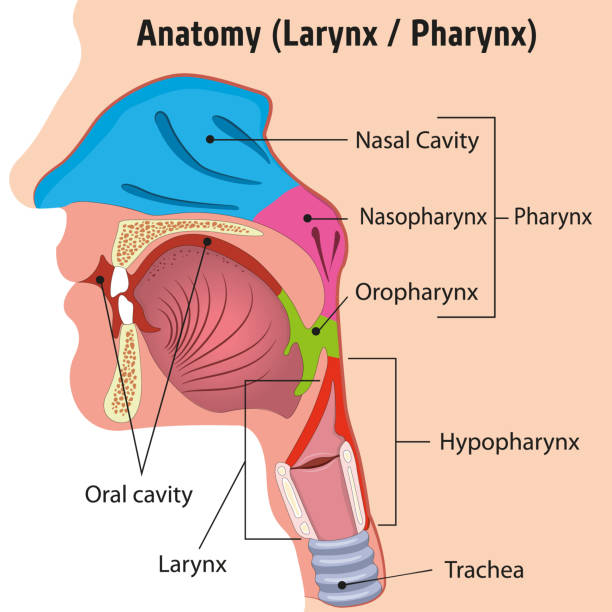
Have a Question?
Get Expert Advice on Head and Neck Cancer Surgery – Contact Us Today.
Skull-Base Surgery for Head and Neck Cancers and Pituitary Tumors
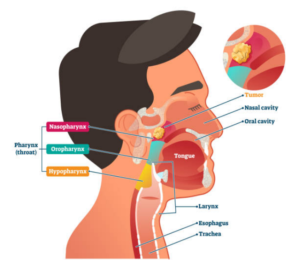
MACS’s head and neck surgeons, led by Dr Athira, are part of a multidisciplinary facility that cares for people with skull-base tumors. Our surgeons are proficient at using a minimally invasive technique known as transnasal endoscopy.
This approach can help preserve speech and swallowing abilities. Patients typically experience faster recovery times than open surgery, often requiring only a few days of hospitalization. MACS’s surgeons have extensive experience with TORS and are adept at identifying patients who can benefit from this technique.
This procedure is often performed to remove nasopharyngeal tumors, sinonasal tumors and other skull-base tumors like glomus tumors. This reduces the complications associated with this surgery. The surgery leaves no visible scars.
Skull-base surgery is very complex. It requires an experienced surgical team, like the one at MACS. Our team includes a head and neck surgeon, a plastic surgeon, and a neurosurgeon.
Advanced Head and Neck Cancer
Our surgeons have immense expertise in removing complicated tumors in hard-to-reach or delicate areas of the head and neck region. These surgeries require extensive planning, and MACS’s head and neck surgeons have vast experience performing them. We often team up with surgeons from different specialties to address the complexities of advanced diseases, such as plastic surgery and neurosurgery to give optimal result to the patient. This collaboration allows surgeons to remove tumors while preserving as much normal tissue as possible.
A Commitment to Quality of Life
MACS’s head and neck surgeons are committed to preserving your quality of life by ensuring you get the right treatment.
While planning your treatment, we use a combination of imaging and vast clinical expertise to determine the extent of the surgery required. Working alongside head and neck imaging specialists, we create a highly precise roadmap to the tumor.
Our surgeons at MACS, employ meticulous surgical techniques to preserve the delicate areas in and around the head and neck. For instance, we utilize state-of-the-art fluorescence technology to identify and protect nerves and glands near the tumor. Our surgeons also use specialized techniques to preserve your appearance, speech, or ability to swallow, taste, or hear.
Advanced Reconstruction Surgery for Head and Neck Cancer
Our highly trained head and neck surgeons, including Dr Athira, emphasize completely removing the cancer while preserving quality of life.
MACS Clinic boasts a team of highly skilled plastic and reconstructive surgeons. They collaborate closely with your head and neck surgeon to ensure a seamless experience. Reconstruction of bones using 3D reconstruction techniques and other structures is often possible as part of the procedure to remove a tumor. This approach can spare you from a separate operation.
Reconstructive surgery for head and neck cancer usually involves transferring tissue from one part of the body to the affected area, typically using a microsurgical technique known as free tissue transfer.
A reconstructive surgeon removes a piece of your tissue with intact blood vessels and places it in the area where the tumor was removed to repair the surgical site. The surgeon uses tiny sutures (stitches) to connect the small blood vessels of the tissue to the blood vessels in the neck. This allows the transferred tissue to thrive and heal properly. The type of tissue transfer you have depends on the size and location of the primary tumor.
When the jawbone needs to be removed, we may use 3D technology to map and measure bone to create a new jaw precisely. We can also replace skin and reconnect nerves and blood vessels to help patients regain their normal appearance and function.
Our competent reconstructive surgeons have designed cutting-edge techniques for managing facial paralysis. Patients with parotid gland tumors can recover movement after treatment.
Dental Care
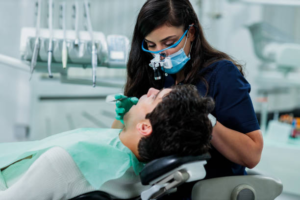
The dental team creates customized prosthetics, such as dental implants, obturators for the roof of the mouth, and other tailored devices to repair the jawbone or tongue for individuals in need.
In some cases, our dental prosthodontists may be able to place dental implants during the surgery to remove the cancer or during reconstructive surgery.
Patient Satisfaction
Our most important focus is patient satisfaction. It all starts with a conversation about your surgery and personal goals.
Speech and Swallow Therapy

Before treatment, a speech pathologist will usually conduct a baseline assessment. This measures your swallowing, speech, voice, and mouth movements. You will learn how these abilities may change as a result of treatment. Your speech pathologist works with your care team to develop a plan for your care during and after treatment. We will help you improve and maintain your swallowing, speech, voice, and mouth movements.
Why Choose MACS for Head and Neck Cancer Surgery?
At MACS, we specialize in advanced, minimally invasive head and neck surgery. We utilize innovative procedures that prioritize curing the condition and restoring form and function for our patients. Our head and neck surgeons have years of experience and expertise in all kinds of head and neck cancer surgery.
We are at the forefront of developing and implementing cutting-edge surgical techniques to preserve or restore function, ensuring the best possible patient outcomes. In addition, we provide speech and swallowing evaluations to individuals with throat, oral, and salivary gland cancer to assist in managing potential treatment side effects.
Choose MACS for head and neck cancer surgery because we offer:
Compassionate care from a team of experts.
A large team of doctors work closely with other specialists and nurse practitioners to ensure the best possible results before, during, and after head and neck cancer surgery.
Convenient locations.
Many of the head and neck cancer specialists and therapies you need are available at our locations in Bangalore, India. For out-of-town patients, we have negotiated special discounted rates at nearby hotels.
Unparalleled depth of expertise.
We adhere to standards of care that are higher than the global norms.
A strong commitment to patient satisfaction.
To constantly improve outcomes and quality of life for people with head and neck cancer, we have developed innovative techniques like RABIT, RIA-MIND, PRIA, etc.
Have a Question?
Start Your Treatment Journey – Schedule a visit to discuss your head and neck surgery needs. Book your appointment now!
Frequently Asked Questions
1. What is head and neck surgery?
Head and neck surgery involves procedures to treat conditions in the head and neck region, including tumors, injuries, and infections. It aims to improve function and quality of life.
2. What are the head and neck cancer symptoms?
Symptoms depends on where the cancer is and can include persistent sore throat, difficulty swallowing, unexplained weight loss, and unusual lumps. If you notice any of these signs, consult a specialist.
3. How is head and neck cancer diagnosed?
Diagnosis typically involves physical exams, imaging tests like CT or MRI scans, and biopsies. Early detection is crucial for effective treatment.
4. What is carcinoma of head and neck?
It refers to cancer that originates in the head and neck region. It includes cancers of the mouth, throat, larynx, and other areas.
5. Can I eat normally after head and neck surgery?
You might need to adjust your diet based on the type of surgery and recovery progress. Your doctor or a nutritionist will provide guidelines to help you eat comfortably.
6. How will head and neck surgery affect my voice?
Depending on the surgery, there may be changes in your voice. Your doctor will discuss potential impacts and offer speech therapy if needed.
7. How can I manage the side effects of head and neck cancer treatment?
Side effects vary by treatment type. Your healthcare team will offer strategies and medications to help manage and alleviate these effects.
